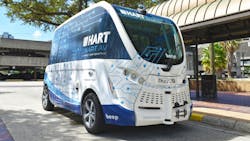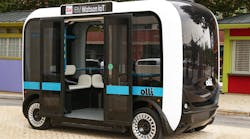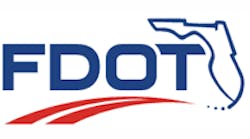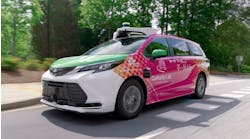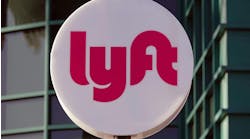HART launches SMART AV pilot for Marion Street Transitway
The Hillsborough Area Regional Transit (HART) and partner Beep launched the Tampa Bay region’s first fully electric automated vehicle program on Oct. 12. The one-year pilot program, which is funded by the Florida Department of Transportation (FDOT), will see a self-driving shuttle traversing the Marion Street transitway in downtown Tampa.
The program, known as Smart Mobility Alongside Regional Transit (SMART) AV, will provide a first mile, last mile connection between the TECO Line Streetcar and the Marion Transit Center. HART notes the driverless shuttle is 100 percent electric and costs less than $30 per month to charge.
"HART is proud to be the regional leader in a new era of transportation innovation in Tampa Bay. HART SMART AV is a first mile, last mile connection from the TECO Line Streetcar in Ybor City to our bus system in northern downtown Tampa. The shuttle is another option for our riders to get to the places that enhance their lives," said HART Deputy Chief of Transportation Ruthie Reyes Burckard.
HART SMART AV operates without a steering wheel and uses a pre-programmed, fixed route with a combination of localization techniques involving state-of-the-art sensor technology. The shuttle uses eight sensors on the outside of the vehicle providing a 360-degree view of the environment. An on-board shuttle attendant serves as an ambassador for the riders to learn more about the technology and oversee the passenger experience. The route includes four stops at Marion Transit Center's Bay F, Kennedy Boulevard, Washington Street and Whiting Street with the option for a future stop at Tampa City Hall.
The HART Board of Directors approved the pilot program for at least one year of operation with an option to continue the program for a second year. With the assistance of the Florida Department of Transportation, HART was awarded funding to procure and operate the pilot AV shuttle program. The project is fully funded by the Florida Department of Transportation with no required match on behalf of HART.
"By integrating with other services and initiatives, this project will demonstrate how emerging technologies can help enhance safety and mobility for our community and the traveling public," said FDOT District 7 Secretary David Gwynn.
At the time HART and FDOT announced the commitment of funding in 2016, HART explained the project was part of a larger vision that HART has to bring innovative technology to the Tampa Bay area while diversifying its array of options to deliver service to the region.
"HART's new autonomous vehicle project is yet another feather in Tampa's cap as we invest in our multi-modal mobility future while providing clean-energy solutions for transit that will help transform Tampa's tomorrow," said Tampa Mayor Jane Castor.
HART is partnering with Beep – a company with prior AV shuttle experience, including three projects in Florida. HART says the company’s experience launching AV projects on public and private roads interfacing with mixed traffic and pedestrians will allow the transit authority to demonstrate the safe transport of people using autonomous multi-passenger shuttles and advance public adoption of autonomous transportation while demonstrating the safety benefits of such a service.
"Investments in safer, sustainable and innovative transportation solutions are more important now than ever to ensure transit agencies like HART can adapt to evolving passenger expectations and needs. The HART SMART AV project is a perfect example of how the most advanced autonomous platforms and services can improve safety, increase access and enhance the rider experience for all by providing much needed first-mile, last-mile connections to the transit hub and streetcar network," said Beep CEO Joe Moye.
The autonomous shuttle will operate at a maximum speed of 15 mph as part of the one-year pilot. Passengers will be required to wear a seatbelt and use a face covering when riding the shuttle. Beep will take extra measures to ensure the comfort and safety of its riders by allowing for social distancing on-board, disinfecting the vehicle regularly and providing hand sanitizer.
